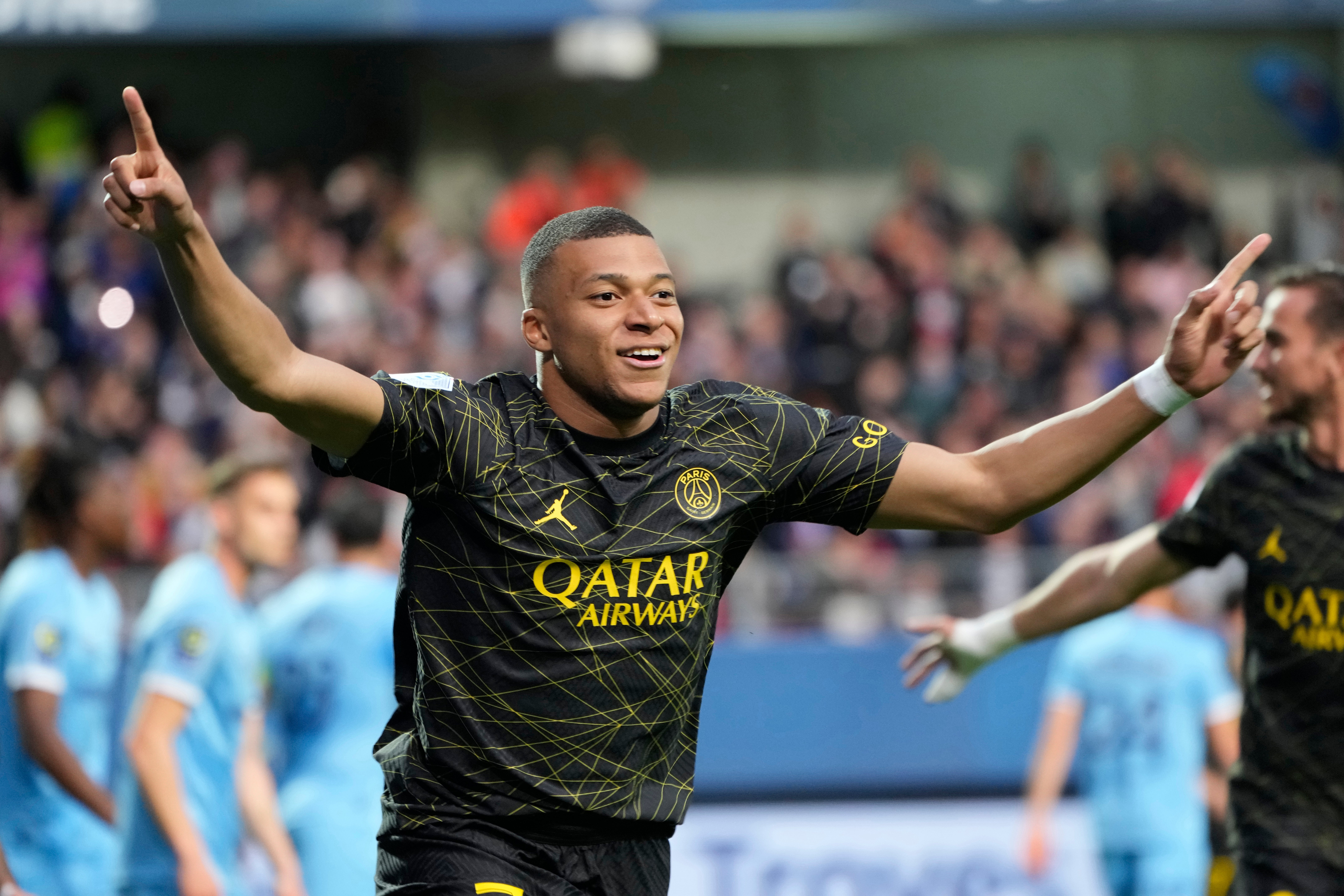The Kylian Mbappe saga shows that in sport, everyone can be bought
The Saudi appetite for sport is growing ever more rapacious, writes Jim White, but signing Mbappe would symbolise more than that: it’s about attaining international prestige and power


When Trevor Francis was signed by Nottingham Forest in February 1979 for one million pounds, it is hard to overstate the reaction across Britain. It was as if someone had taken a gun to Bambi.
Questions were asked in parliament, sermons were preached from church pulpits, newspaper editorials fulminated: everywhere there was consternation that an individual could be valued at more than his own body weight in gold. On BBC radio, the commentator Peter Jones suggested that it was such an economically unsustainable concept, it was unlikely such a sum would ever be paid again.
There is a rich irony that on the very day the first Englishman to command a seven figure fee died, Jones’s prediction was proven once again to be decidedly off the mark. Because, as it was announced that Francis had suffered a fatal heart attack in his home in Spain, the Saudi Arabian club Al-Hilal offered 259 times as much as he had cost in the attempt to sign the French forward Kylian Mbappe from Paris Saint-Germain. And here’s the thing about such an extraordinary valuation: given where it has come from, nobody seems particularly surprised.
“Something new is obviously happening,” was the response of Richard Masters, chief executive of the Premier League. Actually it is a bit more than a mere something: we are in the midst of a footballing revolution. And if Masters is not careful, it won’t be long before England’s Premier League is overtaken as the world’s most significant football product.
When Forest signed Francis, the motive was pretty straightforward: it was in order to help the club achieve its ambition of winning the European Cup. Al-Hilal’s audacious attempt to lure the man who, last December, became the first player to score a hat trick in a World Cup final in 56 years, is significantly more ambitious. It is part of a plan to shift the very epicentre of the footballing world eastwards into the desert. This is a transfer which is less about strengthening an individual club, and more about underpinning a geopolitical coup. This is the latest shot in a battle to take over world sport.
The Saudi appetite for sporting status has been growing ever more rapacious. Formula One, boxing, golf: all have been seduced by the simple application of bank transfers. But what accelerated the process was when last year’s World Cup was staged in next door Qatar. It was then that the Saudis properly recognised football’s reach and power. They had already bought Newcastle United and had invested in a bid to host the 2030 edition of the competition.
But what the Qatar experience proved is that nothing garners global attention quite as efficiently as 22 men kicking a ball around. What they wanted was not just a financial stake in other country’s leagues, they wanted their own to become the most talked about in the world. And how would they do that? Simple. Just apply the most persuasive tool they have at their disposal: money.
The process started when Cristiano Ronaldo was attracted to the country to play immediately after the Qatar World Cup. Karim Benzema followed this summer, along with a substantial list of other established stars like Jordan Henderson. The once sleepy backwater of the Saudi Pro League was beginning to resemble the place to be.
But Mbappe is of a different order. His signing would represent something far more substantive. Ronaldo is 38, Benzema 35, Henderson 33. Mbappe is 24. Persuading him to come play in the Saudi league would transform its reputation overnight from a nice place to buff up the pension into a competition that attracts the very finest at the peak of their powers. Instead of 9,000 fans who turned out last season to watch the club’s home matches, Al-Hilal’s 65,000 capacity state-of-the-art stadium would be full to the brim. The eyes of the world would be trained on the place. Suddenly Saudi would matter.
And this is what is at the heart of the policy of sporting dominance. The usual insistence is that it is being undertaken as an act of sportswashing, to cleanse international opinion of a theocratic autocracy in the reputational laundromat.
But that is not the motivation. In part what it is really to do with is modernising an economy dependent on the production of oil. In part it is to achieve international prestige and power, give Saudi a place at the head of every table that matters. But mainly it is to placate an educated, youthful population growing ever more weary of the diktats of their government. Who needs democracy, freedom and individual rights when you have Kylian Mbappe playing for your local team? This is bread and circuses.
And what the Saudis have quickly appreciated is that there is one weapon certain to bring about victory in this campaign of sporting annexation: cash. When the world’s most in-demand player, the one every club in Europe would give their eye teeth to have on their roster, heads east we will be given further proof of universal susceptibility to the Saudi dollar. In sport seemingly everyone can be bought.



Join our commenting forum
Join thought-provoking conversations, follow other Independent readers and see their replies
Comments